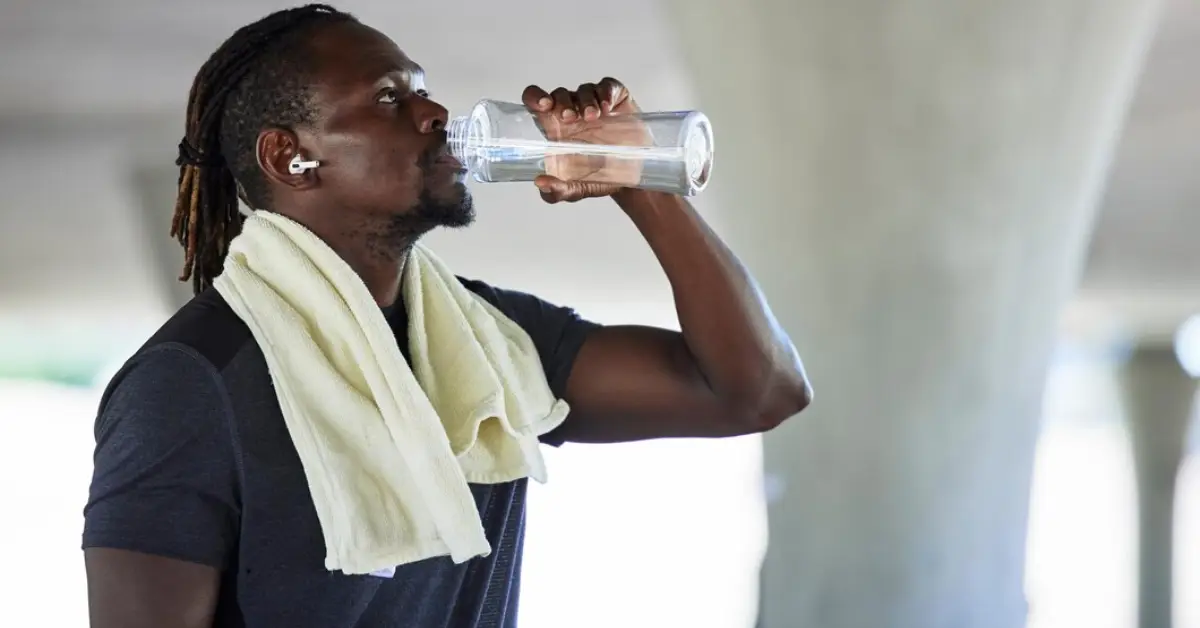SUMMER is back and the temperatures are rising. Staying hydrated is essential, especially for the health of your kidneys. These organs play a vital role in keeping your body healthy and functioning properly.
They also remove waste from your blood, regulate fluid levels in your body and produce hormones that help control your blood pressure.
When your kidneys are not working correctly, it may lead to a build-up of toxins in your body, making you feel sick. Being sick while your family and friends are out enjoying the summer weather can be frustrating so taking measures to improve your kidney health is important.
Keeping kidneys healthy
Drink plenty of water. When it is hot outside you may need to drink more water than usual to stay hydrated. It is important to drink enough water because dehydration may cause or worsen kidney problems.
When you are dehydrated, waste and acid build up in your body, clogging your kidneys. In addition, drinking plenty of water may prevent kidney stones and urinary tract infections, both of which strain your kidneys.
If you have trouble drinking enough water, try carrying a water bottle with you wherever you go or set reminders on your phone to drink water throughout the day. You can also add fruit to your water to give it flavour.
Avoid sweetened beverages. It may be tempting to reach for a cold fizzy sweetened drink to quench your thirst, but sugary drinks may worsen kidney function. Sugar has an impact on your kidneys by increasing blood sugar levels, which may lead to diabetes.
Diabetes is the leading cause of kidney disease, so avoiding sugary drinks is important if you want to protect your kidney health. If you are craving something other than water, try sparkling water with a slice of lemon or lime.
Reduce your alcohol consumption. During summer, it is easy to get caught up in all the outdoor braais and pool parties. While a glass of wine or beer here and there is unlikely to cause harm; it is important to limit your alcohol consumption to maintain good kidney health.
Excessive alcohol consumption may lead to dehydration, which is bad for your kidneys. Alcohol is a diuretic, meaning it causes you to urinate more frequently. When you urinate too often, your body loses essential minerals and electrolytes, which may lead to kidney stones.
If you do drink alcohol in summer, be sure to stay hydrated by drinking water in between alcoholic beverages.
Regularly exercising is good for more than just working on your appearance for the summer season. Exercise helps improve blood circulation, which is important when trying to improve kidney health.
Poor circulation may cause a build-up of toxins and fluid in your kidneys but regular physical activity helps improve blood flow and prevent these issues.
Exercise may also help reduce your risk of developing obesity, high blood pressure and Type Il diabetes. All these conditions may lead to kidney disease.
Make physical activity a part of your daily routine. Try to be active for 30 minutes or more every day. Your exercise does not have to be strenuous. You can go for a swim, take a walk or ride your bike around the neighbourhood.
Aim to maintain a healthy weight. If you are overweight or have obesity, work with your doctor, healthcare provider or a dietitian to create a realistic weight-loss plan. If you are a Ci-mas member you can consult the Cimas iGo Wellness team, which includes a dietician, to help you develop a plan that is appropriate for you.
Preventing kidney disease
You are more likely to develop kidney disease if you have diabetes, high blood pressure, heart disease or a family history of kidney failure.
You can protect your kidneys by preventing or managing health conditions that cause kidney damage such as diabetes and high blood pressure.
Ask your doctor or other healthcare provider about your kidney health.
Early kidney disease may not have any symptoms, so being tested may be the only way to know the condition of your kidneys. Your doctor or healthcare provider will help decide how often you should be tested.
Seek medical attention right away if you develop a urinary tract infection (UTI) as it can cause kidney damage if left untreated.Make healthy food choices. Choose foods that are healthy for your heart and your entire body, such as fresh fruit, fresh or frozen vegetables, whole grains and low-fat or fat-free dairy products.
Eat healthy meals and cut back on added sugars and salt. Try to have less than 10% of your daily calories come from added sugars. Aim for less than a teaspoon or 2,3 milligrams of salt or sodium each day. You can start by cooking with a mix of spices instead of salt. Choose veggie toppings such as spinach, broccoli and peppers for your pizza. Try baking or boiling meat and fish instead of frying them.
Serve foods without gravy or added fats. Try to choose foods with little or no added sugar. Gradually work your way down from whole milk to two percent milk until you are drinking and cooking with fat-free or low-fat milk and milk products.
Eat foods made from whole grains such as whole wheat, brown rice, oats and whole-grain corn every day.
Whole-grain bread for toast and sandwiches. Substitute brown rice for white rice for home-cooked meals and when dining out.
It is also important to read food labels and choose foods low in saturated fats, trans fats, cholesterol, salt or sodium and added sugars. If you smoke or use other tobacco products, stop. Limit alcohol intake as well. Drinking too much alcohol can increase your blood pressure and add extra calories, which can lead to weight gain.
If you drink alcohol, limit yourself to one drink per day if you are a woman and two drinks per day if you are a man.
Resting is also important to stay healthy. Make sure you have enough sleep. Aim for seven to eight hours of sleep each night.
Explore stress-reducing activities. Learning how to manage stress, relax and cope with problems can improve emotional and physical health.
Physical activity can help reduce stress, as can mind and body practices such as meditation or yoga.






